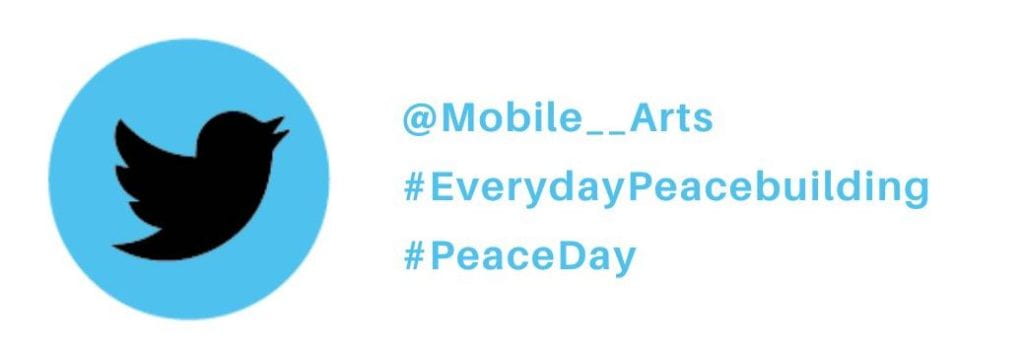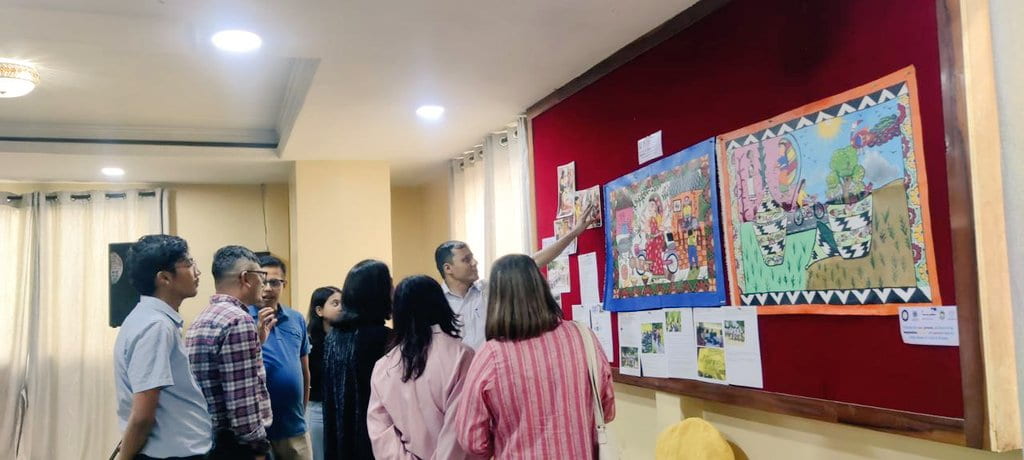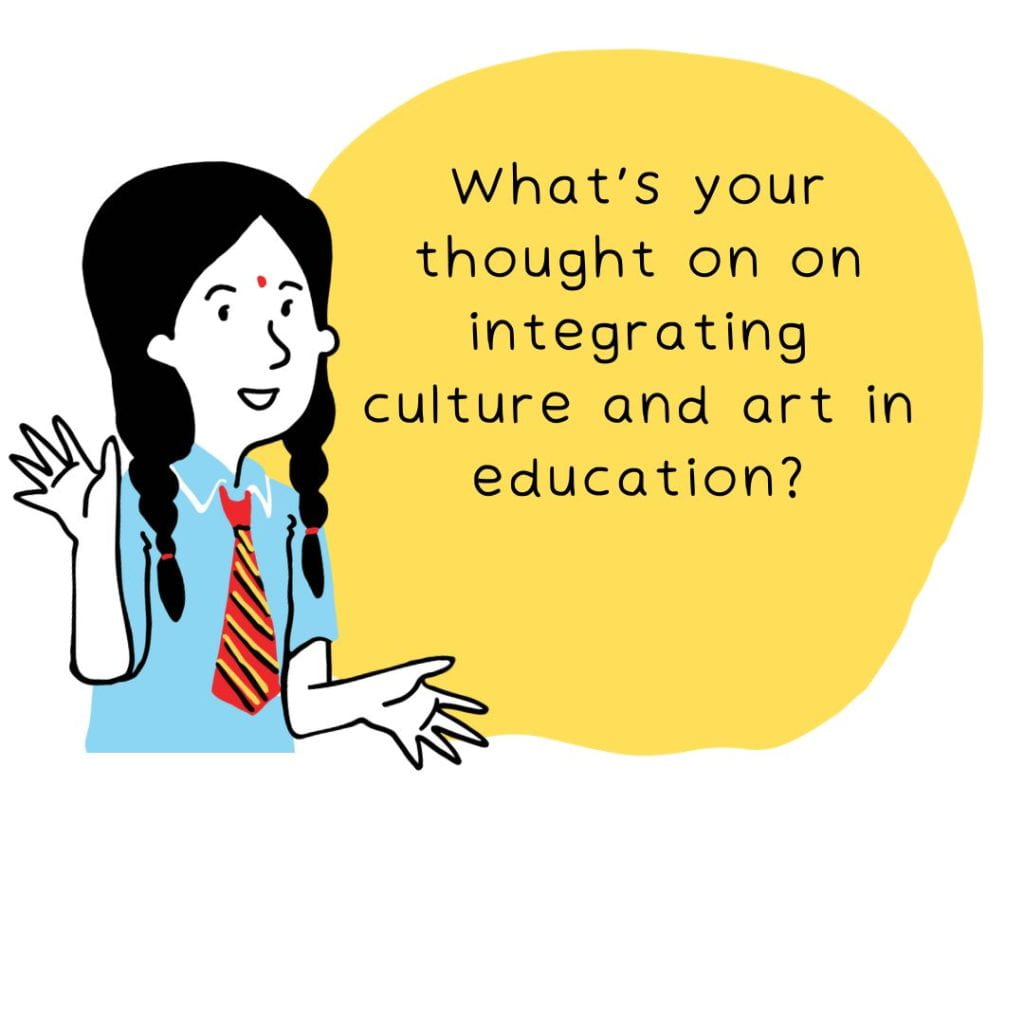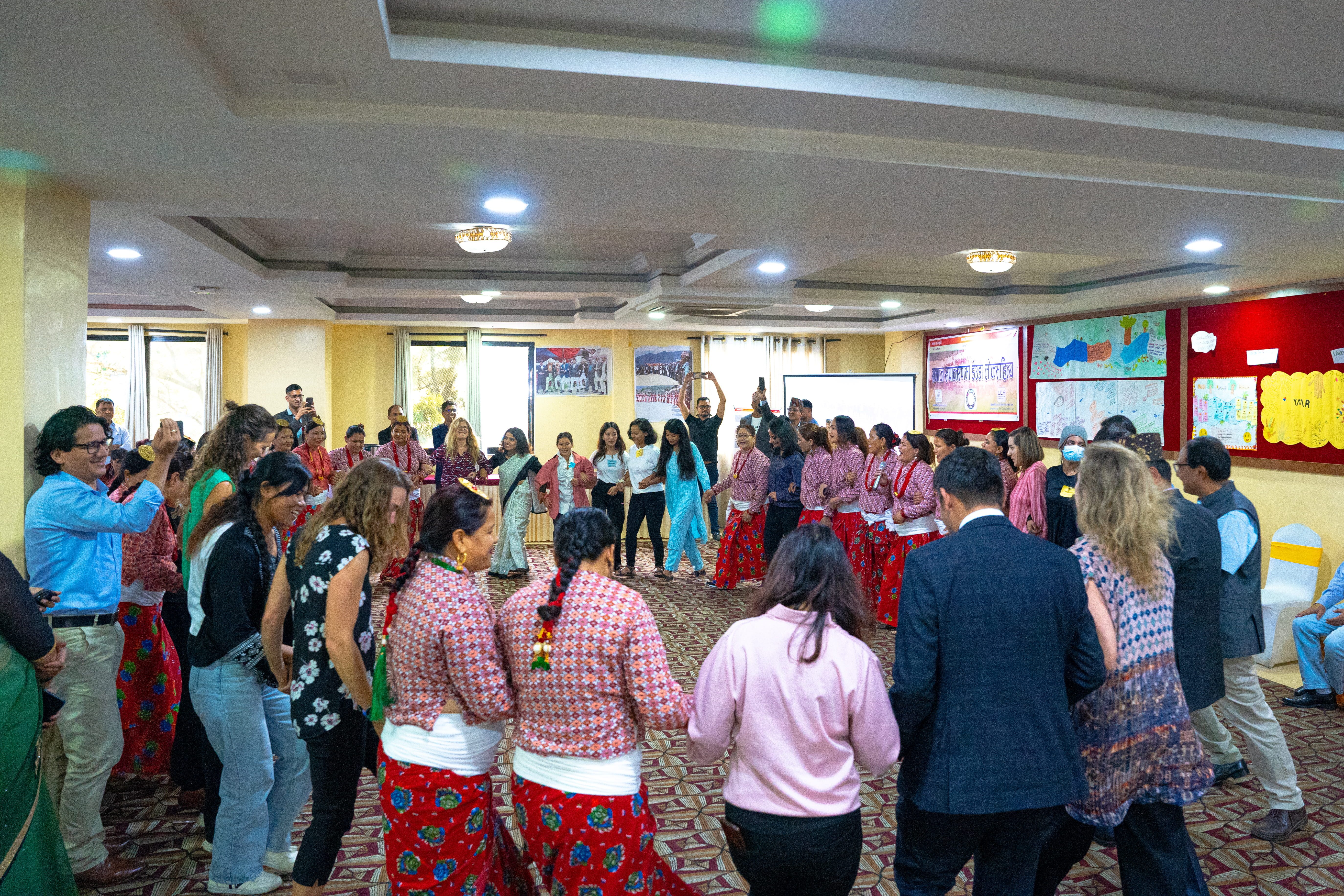Latest posts
- Policy documents: UNICEF Innocenti Discussion Paper on Children and Youth Participation (August 2025) 26 August 2025
- MAP International Online Conference 2025: Session Summaries Report 24 July 2025
- MAP 2025 Conference Highlights: Recordings and Slides 23 July 2025
- Journal article: Reimagining Peace Education in Nepal: Arts-Based, Learner-Centric Pedagogy for Social Justice and Equity 13 July 2025
- Curricula: Mithila art-focused local curriculum in Nepal 2 July 2025
- MAP International Online Conference 2025 1 June 2025
- Policy brief: Gira Ingoma book and policy brief: “The Culture We Want, for the Woman We Want” 28 November 2024
- Manuals and toolkits: GENPEACE Children’s Participation Module in the Development Process 13 November 2024
- Journal article: [Working Paper] Gira Ingoma – One Drum per Girl: The culture we want for the woman we want 30 October 2024
- Curricula: Beyond Tradition: Psychosocial Model 30 October 2024
- Curricula: Beyond Tradition Module: Revitalizing Lenong as a Model for Teaching Betawi Arts 30 October 2024
- Curricula: Beyond Tradition: Lenong Revitalisation as a Model for Teaching Betawi Cultural Arts 30 October 2024
Snippets from the UNESCO – MAP Roundtable in Kathmandu, Nepal, on 21 September 2023
Inspiring insights and collaborative conversations on culture and arts education in Nepal
On 21 September, Mobile Arts for Peace (MAP) in Nepal, in collaboration with UNESCO Kathmandu, hosted a National Dialogue (Roundtable) on Culture and Arts Education. The UNESCO-MAP National Dialogue convened diverse voices and practices from across generations, bringing together young people and key national stakeholders working in the field of culture and arts education. The event celebrated promising local to national arts-based practices through exhibitions, performances, and reflective dialogue sessions. The aim was to recognise and value these practices, but also envision a future where they are integrated into formal and informal education systems. Using evidence and practices from MAP, UNESCO and other organisations, the dialogue was directed towards creating a roadmap to shape curriculum development and innovative arts pedagogy in the country. In addition, the event provided a platform for policy makers to share reflections, commitments and future collaboration opportunities, generating momentum towards embedding arts education into national curricula.
On the day of the roundtable, MAP was live-tweeting with the support of our YAARs (Youth Advisory Advocacy Researchers) as well as researchers on-site. We’re very grateful to have YAARs members (Juhi Adhikari, Prasiddhi Shakya, and Neharika Shrestha), Sarah Huxley and Nar Bahadur Saud as reporters who fantastically captured and shared moments and key quotes from the events, giving a sense of being there, as illustrated below.
Here are some snippets of the event captured by our reporters:




What an exciting day to see MAP Nepal stakeholders and @UNESCOKathamandu come together. Looking forward to a fruitful day! Spotted here are our large grant and commissioned project PIs @wrightl87, Laura Lee, @LibertadorCymru and HRFC@khatripandav #EverydayPeacebuilding #PeaceDay
|
|
@karkhana_samuha, the MAP partner for our #IntergenerationalDialogue project, is also showcasing their co-created participatory arts-based community curriculum for peacebuilding.


|
|

So glad to have the Janaki Women Awareness Society (JWAS) @jwas_nepal with us today, an organisation that empowers women and supports them with their livelihoods, as well as fulfilling their dreams.
|
|
Members of Youth Advisory Advocacy Research (YAAR) Nepal are demonstrating an image theatre to present problems and solutions that exist in their communities. It suggests #participation, #dialogue and #collaboration as a solution to their issues.


|
|
“Today, we are hoping to encourage spaces to consider how engaging with art forms is much more than just an end product/object, but importantly an educational power source,”
Sarah Huxley, Research Associate for MAP
|
|


Panel discussion on #Culture & #ArtsEducation and art-based pedagogies with panelists: Balkuntha Thapa Aryal (CDC, MoEST), Sailendra Jha @sailjha (KMC), Prof. Balchandra Luitel (Dean School of Education, KU), Deepa C. Joshi (Incessant Rain) & moderator Saroj Kushwaha (Mahato)
|
|
Here is Dr Dhurba Raj Regmi (Chief of Education) giving the welcome speech and how fascinating Mr Sailendra Jha @sailjha talks about Book Free Friday in government schools.


MAP’s Principal Investigator, Professor @AnandaBreed, is presenting MAP’s aims on the use of interdisciplinary arts-based practices to influence curricula and to create structures of communication between young people and policymakers at #NationalDialogue on #Culture & #ArtsEducation.

|
|
“We need to deconstruct the perspective in Nepal of subjects such as Mathematics, Science, Engineering being considered high level and arts, and culture as low level. Universities and teachers must challenge them.”
Prof. Balchandra Luitel – Dean, School of Education, KU
|
|


We love to hear YAARs @karkhana_samuha speaking on an intergenerational panel, reflecting on their exploration of arts-based methods in educational settings.
|
|


Deuda in action!
Everyone is participating in Deuda.



“Deuda is not only a culture, its the heart that speaks out. It is love, it is romance, it is a diverse spectrum in society; Dalits have never been able to challenge their landlords, but Deuda has been able to challenge them… ”
Dila D. Pant, Researcher, University of Creative Arts
|
|



It is fascinating to see guests interacting with the live mural painting by artist Arin Shrestha and his team! The use of blue and red colours on the mural symbolises the national flag of Nepal.
|
|
“An image speaks for itself. We got chance to experience this and felt really amazing how no words, just body language, and portraits can convey a lot of messages. Being part of YAAR (Youth Advisory Advocacy Research) developed critical thinking, leadership, communication personality, and much more. Through research we found out that peer-based learning is more effective as all are of similar age group and they are more comfortable to express themselves.”
Youth researcher YAAR team
|
|
Take away from UNESCO Kathmandu team
“The whole dialogue led to the recognition of a broader art form including cultural art, dance, modern art and many more. it is also linked to the economy. Re-thinking education system and curriculum, redefining education including for whom? How? For what? Highlighting the teacher preparation process, what are the problems, what should be done and how can it be done.”
– Dr Dhurba Raj Regmi (Chief of Education) and colleagues
Check out an article from UNESCO here

